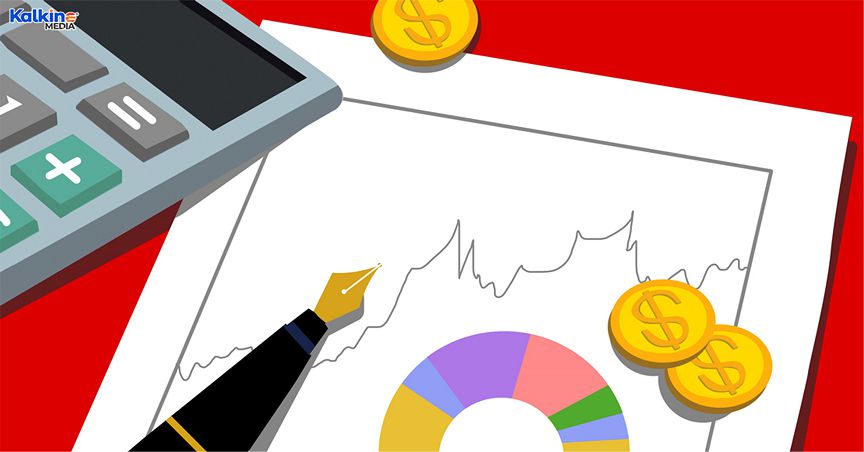Highlights
- The supply-side challenges and the war on Ukraine have prompted a rise in the cost of living, raising fears of an economic slowdown.
- Chancellor Rishi Sunak announced a string of tax cuts, including a cut in fuel duty that would be implemented at the earliest.
- Soaring oil prices have become a major pain point for policymakers.
As inflation fears spread jitters across economies, policymakers face the tough challenge of aligning the economic recovery with the people’s expectations. It is no surprise that the supply-side challenges and the war on Ukraine have made for a deadly combination, causing widespread inflationary pressures and an economic slowdown. Amid this backdrop, the UK has introduced tax cuts to ease the burden on households.
On the contrary, Australians are awaiting their worst nightmare as interest rate rises seem to be on the Reserve Bank’s cards. With multiple interest rates hikes expected to occur by the end of the year, mortgage holders are concerned about massive jump in their interest expenses.
ALSO READ: Australia Federal Elections 2022: Will Covid wave see Aussies cast their vote via phone?
Policymakers in Australia can take some cue from Chancellor Rishi Sunak’s Spring Statement delivered on March 23.
Key takeaways from Spring Statement
- Reduction in fuel duty: Chancellor Sunak announced a reduction in fuel duty by 5p a litre for full twelve months. It represents the second cut in the fuel duty in 20 years for the country, which is worth over £5 billion.
- Increased threshold for paying national insurance: The Chancellor further raised the threshold at which workers start paying national insurance by £3,000 per year. This is a sharp uptick from the planned increase of £ After the increase, the national insurance threshold comes at par with the income tax personal allowance of £12,570. He further declared a planned rise of 1.25 percentage points as a dedicated funding source for health and social care.
- Reduced VAT on energy products: The VAT for households, who have installed solar panels, heat pumps, or insulation, has been scrapped from 5% to zero.
- Future income tax cut: He announced that the basic rate of income tax would be cut from 20% to 19% in 2024. The income tax cut was not a part of this year’s announcement due to uncertainty in the economy. Chancellor Sunak stated that the slated income tax cut would be the first in 16 years and is expected to come at a time when borrowing and inflation were low.
- Increased reliefs for businesses: The government is also expected to cut tax rates on business investments at the autumn budget. The employment allowance for small businesses would be increased to £5,000, which amounts to a tax cut worth up to £1,000 for half a million small-scale firms starting in two weeks’ time.
- Better household support fund: Rishi Sunak also added that the household support fund by the government would be doubled to £1 billion. The move is aimed at easing the increased cost of living for households.
Australia can take cues
The announcement by Chancellor Sunak shows an aggressive push towards improving the cost of living for households. Given the global energy crisis, a VAT cut to zero on energy efficiency products could reduce some pressure off households.

Oil prices have soared as major economies have imposed sanctions on Russia, restricting an already depleted supply of oil. While the move was a targeted response to Russia’s actions, it has prompted some countries to import oil from alternate sources at a much higher rate. Essentially, this rate rise has spread to the rest of the world, with soaring oil prices being the major pain point facing policymakers.
Sunak’s initiative of reducing fuel duty by 5p has been hailed as an effective way to bring some affordability back into households. The cut is said to immediately benefit people, while other measures are likely to take full effect in the long term.
RELATED READ: Why is stagflation back on investors' minds?
Challenges demand attention
The recent changes have been taken with a grain of salt and have been subject to some harsh criticism. The Chancellor did not raise benefit payments, urging many to believe that only partial efforts have been taken.
Critics argue that income tax and fuel duty cuts alongside VAT reductions are less likely to reach the poorest households, where most people do not even own a car. They suggest that greater attention should have been paid to universal credit or warm homes discount, which were more likely to benefit the weaker section of the society.
The tax cut on incomes and business investment would be implemented in the upcoming phases and have not been taken too well by many economic pundits. Sunak’s forward-looking policies have received flak under the pretext that these promises have been introduced only to rebuild his image as a tax cutter.
How the renewable energy sources have evolved in the UK over the years?
While the fuel cuts seem to be an efficient short-term solution, the UK’s vast budget deficit poses a major problem for the long run. Rishi Sunak also mentioned how tax cuts alongside sanctions against Russia could weigh heavily on the national balance sheet. Despite the tough conditions, any efforts to ease the cost of living pressures are likely to be beneficial. Australia can also take cues from such measures.
DO NOT MISS: What is rent control? Can it help tame Australia's housing crisis?



